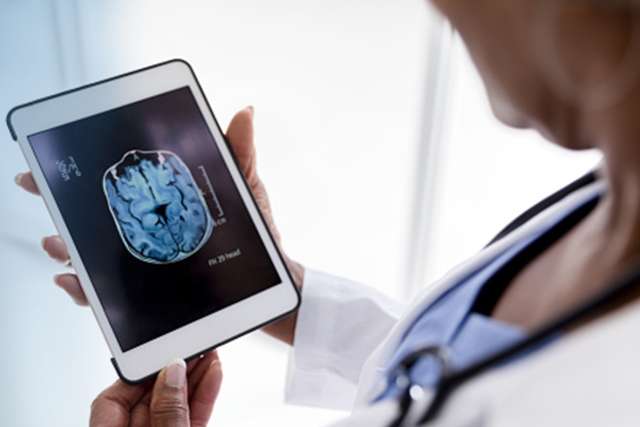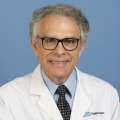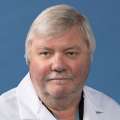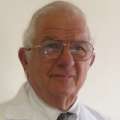Alzheimer's Care & Treatment
Our Alzheimer’s and dementia neurology care team provides full-spectrum care for patients with memory decline. We offer memory evaluations, dementia care and supportive programs for caregivers.
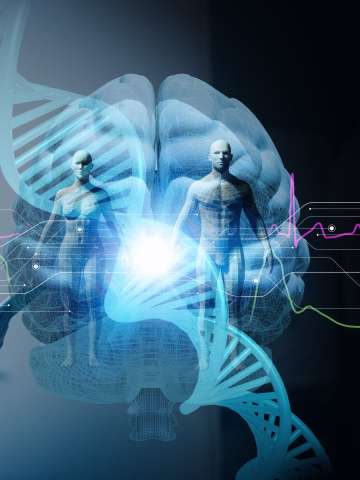
Why choose UCLA Health for Alzheimer’s diagnosis and care?
Specialists in the Mary S. Easton Center for Alzheimer’s Research and Care (UCLA Easton Center) help patients and their families navigate the complex needs of Alzheimer’s disease and other forms of dementia. Our dementia neurologists diagnose memory disorders and other cognitive changes and offer state-of-the-art treatments.
Highlights of our program include:
National recognition: Our center is among the top in the nation. We receive support from the National Institute on Aging, National Institute of Neurological Disorders and Stroke, United States Department of Defense, state of California and numerous generous donors who share our commitment to dementia research.
Emphasis on early diagnoses: When patients receive an early dementia diagnosis, they can access treatments and resources right away. This enables patients to function at their highest level possible for longer periods. At the UCLA Easton Center we diagnose Alzheimer’s disease in its early stages, when patients can take advantage of the most effective therapies.
New treatment options: Patients who receive care at UCLA Health have access to a range of clinical trials and research programs. Our outpatient clinic refers eligible patients to the UCLA Easton Center, which includes the Kagan Clinical Trials Program and the Alzheimer’s Disease Research Center. Patients benefit from the latest, most promising therapies designed to slow the progression of Alzheimer’s disease. Health researchers have been the first to discover several groundbreaking therapies, such as Dr. Vossel's discovery of antiseizure treatments in Alzheimer’s disease.
Our services
Our dementia neurology team provides extensive services for patients dealing with memory loss and their caregivers, including:
Memory Clinic
Through the UCLA Easton Center, our neurologists also lead the UCLA Dementia and Memory Disorders Clinic. This outpatient clinic specializes in early diagnosis and intervention for Alzheimer’s disease and related dementias, with a special focus on treatments to slow disease progression. We offer:
- Initial evaluations
- Follow-up care after diagnosis
- Neuropsychological testing
- Referrals to research opportunities
- Connection to community social services
- Second opinions
Patients who call the UCLA Dementia and Memory Disorders Clinic speak directly with a patient coordinator. This specialist collaborates with clinicians to schedule appointments or refer patients to the most appropriate UCLA Health services. Call the clinic at 310-794-1195 to speak with the patient coordinator.
Research center
The UCLA Easton Center is a comprehensive research and care program. Our specialists study Alzheimer’s disease and other dementias. The name of our center honors the mother of Jim Easton, a partner and benefactor of the center.
Tests and treatments we offer
UCLA Health specialists provide a full spectrum of care for patients with suspected or diagnosed Alzheimer’s disease or other forms of dementia. Diagnosis and treatment may include:
Alzheimer’s disease evaluation and diagnosis
Through the UCLA Easton Center, we offer comprehensive evaluations for cognitive and memory-related problems. Typically, our evaluations consist of two outpatient visits with diagnostic testing between appointments. Diagnostic testing may include:
Neuropsychological assessments: These evaluations measure how well the brain is working. An evaluation might include memory tests, verbal communication tests and behavioral or motor skills assessments.
Structural brain imaging: Structural brain scans look for the physical characteristics of the brain that could affect function. For example, a structural brain image might detect a tumor that is pressing on critical brain areas and affecting function.
Glucose positron emission tomography (PET) imaging: Glucose PET imaging helps distinguish different types of dementia by evaluating how your cells use glucose (sugar).
Blood tests: Patients might have blood tests to diagnose or rule out Alzheimer's disease and other conditions that could affect memory, such as thyroid issues or hormonal imbalances.
Spinal fluid tests: Spinal fluid tests may evaluate cerebrospinal fluid (CSF) for certain proteins that could indicate Alzheimer’s disease or other conditions.
Molecular brain imaging: Amyloid and Tau PET scans are conducted through research programs. These scans use radiotracer injections to look for proteins that could pinpoint Alzheimer’s disease or other types of dementia.
Alzheimer’s disease treatment
Alzheimer’s disease treatment currently focuses on managing symptoms. There’s no cure for Alzheimer’s disease and no treatment to stop its progression, although promising treatments are on the horizon.
The specialists in the UCLA Easton Center continually implement new therapies as they become available. Some medications can help people with Alzheimer’s live a higher quality of life and continue their usual activities for longer.
Treatment may also focus on problems related to Alzheimer’s, such as depression or sleep disturbances. In addition to medication, health care providers may recommend:
- Eating a nutritious diet full of fruits, vegetables and whole grains
- Exercising at a moderate pace most days of the week, to the extent that the patient is able
- Maintaining a structured routine to help decrease anxiety and stress
Meet the team
Our team includes neurologists who specialize in diagnosing and treating Alzheimer’s and related dementias. We engage in research studies to help us improve our care of patients with memory-related conditions. We use the latest diagnostic tools and treatment options to help people with Alzheimer’s live a higher quality of life and manage symptoms.
Program Director
Faculty
Fellows
Staff Providers
Community Neurologists
Contact us
Call 310-794-1195 to request an appointment with an Alzheimer’s care neurologist at UCLA Health.
Find your care
Our dementia neurologists offer comprehensive memory evaluations, diagnosis and dementia care. To learn more about our services, call 310-794-1195.
